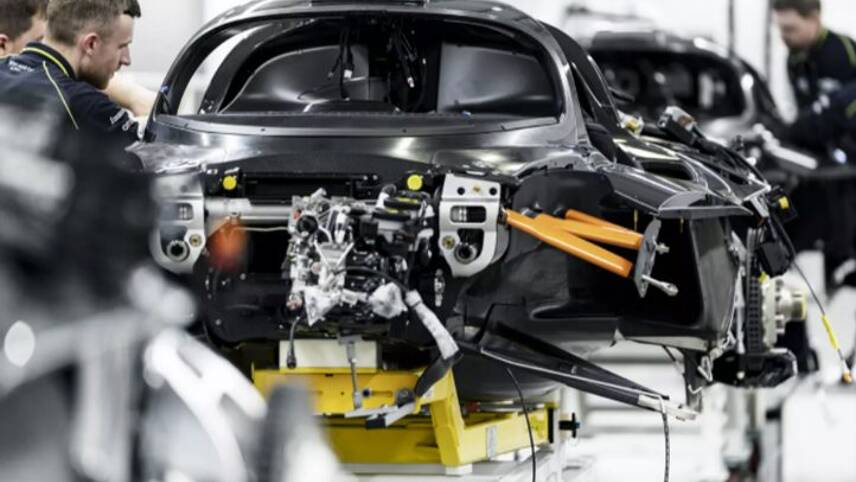Register for free and continue reading
Join our growing army of changemakers and get unlimited access to our premium content

Image: Aston Martin
The commitments were made late last week as the firm unveiled a new environmental, social and governance (ESG) strategy called Racing.Green. The delivery of the strategy’s ambitions will be overseen by a newly created board-level sustainability committee.
In publishing the strategy, Aston Martin confirmed that it has signed its intention to set verified science-based targets to support its net-zero commitments. It has applied to the Science Based Targets initiative’s (SBTi) Net-Zero Standard, which requires businesses to set 2030 goals aligned with a 1.5C temperature pathway. The Standard also requires businesses to reduce rather than offset the majority of their emissions by the time they reach their net-zero target deadline.
For Scope 3 (indirect) emissions from the supply chain, Aston Martin is proposing a 30% reduction target for 2030, set against a 2020 baseline. A full plan of action to reduce, then neutralize, supply chain emissions will be drawn up in the coming months.
Proposed targets for operational emissions are yet to be announced. Aston Martin has recorded a 44% reduction in emissions intensity for UK operations between 2020 and 2021, due to the adoption of renewable energy and improvements in energy and material efficiency.
As for emissions from vehicle use, Aston Martin has confirmed that it will launch its first plug-in hybrid in 2024 and its first pure electric vehicle (EV) in 2025. It will then fully electrify its portfolio of SUVs and sports cars by 2030.
Aside from emissions, Racing.Green includes 2025 targets to end plastic packaging waste, reduce water consumption by 15% and deliver biodiversity net-gain at all manufacturing and office sites.
Aston Martin Lagonda’s chief executive Tobias Moers said: “Aston Martin is accelerating. We are transforming our business and believe that now is the time to challenge ourselves to make a bigger difference, to become a world-leading sustainable ultra-luxury business.
“Whilst embracing electrification, we believe our sustainability ambitions must be broader than just producing emissions-free vehicles and want to drive sustainability principles across our entire business, with a team representative of society proudly producing responsible products with a reduced environmental impact and making a positive contribution to the communities where we operate.”
Aston Martin is notably a member of the Business Ambition for 1.5C movement, which grew exponentially in the run-up to COP26 in Glasgow last year. More than 1,400 companies are committed to the initiative, which is jointly overseen by Race to Zero and the SBTi.
Net-Zero Tracker’s post-COP26 stocktake revealed that the total cumulative combined global revenue covered by public company net-zero targets amounts to around $19.5trn. This figure is up almost fourfold year-on-year and represents almost 75% of total revenues. However, it also revealed wide variations in the credibility of corporate net-zero targets. The scaling of standards like the SBTi’s present an opportunity to help improve target integrity.


Please login or Register to leave a comment.